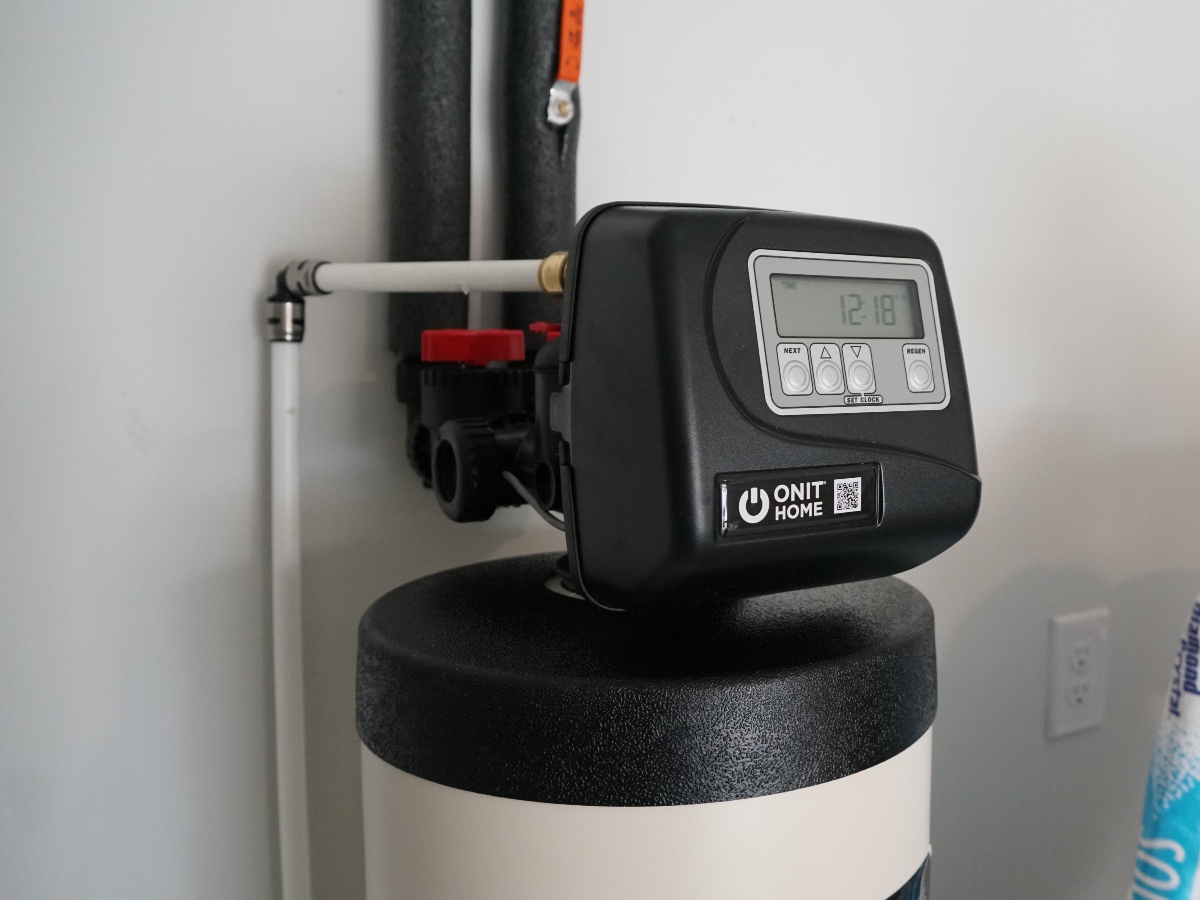Almost everyone has experienced the sulfur smell in water at some point and found it to be a really repugnant smell reminiscent of rotten eggs. It’s never a good sign when you encounter this undesirable smell in your water. However, it’s almost always attributable to having an excessive amount of sulfur somewhere in your water.
It may take some doing in order to trace exactly where that sulfur smell is coming from. It’s not usually easy to figure out exactly why your water has the sulfur smell, because there could be any number of sources causing it. One good thing you should know is that sulfur is not a heavy metal. That means you won’t be drinking anything toxic that can trigger neurological disruption.
In fact, sulfur is one of the most commonly occurring elements in nature. It is known for a number of beneficial things like preserving wine, healing scars from acne, and helping to relax people. Even so, getting over the smell of sulfur in your water can be difficult, and most likely you’ll want to eliminate it. This way, you won’t be obliged to sniff it every time you turn on a water faucet.
Why Your Home Water Smells Like Sulfur
That sulfur smell in water from your faucet generally indicates the presence of a high volume of bacteria in the water itself. Sometimes it can indicate a problem with one of the delivery components that brings that water to you. As the bacteria breaks down, it produces hydrogen sulfide gas, which is actually a very common groundwater occurrence, and poses no threat to anyone’s health.
Don’t start by blaming your city’s treated water, because the sulfur smell in water you detect almost never comes from treated water supplies. Sulfur bacteria almost always originate from groundwater. This is especially true if you have well water or some other type of still water supply, and then you can almost expect to encounter this smelly phenomenon. Here are some of the reasons why you might be detecting the smell of sulfur in your water.
Can You Taste Sulfur in Your Water Source?
Even worse than smelling sulfur in your water is the prospect of tasting it as well. Yet, that is generally the case if your water has a high enough level of bacteria in it. This is sure to turn off family members, who may insist on having bottled water on hand. Until you’ve had a chance to get your water tested for its bacteria content, it’s probably a good idea to keep a supply of bottled water available.

Sulfur is a Sign That You Have a Problem With Your Well Water
Rather than relying on treated city water, a number of residential homes have well water as their sole source of incoming water. This is especially true of those homes situated in rural areas outside the mainstream of an urban water supply. Sulfur is one of the most common elements found in the ground. So, there’s a pretty fair chance that some of it will work its way into your well water supply. This is especially true in areas where the ground has a good amount of sandstone or shale in its composition.
If this is your situation, a really good place to start testing the water supply is your well water. You can pick up a water test from any urban water provider. That will allow you to check out the trace elements in your own water supply. If you don’t want to do it yourself, you can also get in touch with a certified drinking water laboratory that will conduct the testing for you. The testing conducted on a city water supply is different from a well water test. It will generally measure a number of different components.
For instance, still water sources such as well water may have no traces of chlorine or other chemicals. This is because the water is not processed by any kind of treatment plant. When you conduct your quality test, find out how much hydrogen sulfide is contained in the water supply. You may find that the amount of hydrogen sulfide is excessive in your water supply. If so, you’ll be able to install a water filtration system that will completely eliminate the rotten egg smell forever.
Water Heater Issues
Sometimes the sulfur smell in water is attributable to a faulty water heater. In these cases, the magnesium anode rod inside the water heater is usually the culprit. The best way to determine whether the sulfur smell is coming from your water heater is to simply turn the water faucet in your sink on. You might detect the rotten egg smell only when you’re using hot water. In this situation, the issue is probably centered around your hot water heater. If the smell comes from both hot and cold water, it’s more likely that the smell is coming from your well water source.
If you determine that the water heater is indeed the problem, you may not necessarily have to completely replace it. First of all, you should try to replace the magnesium anode rod. If that doesn’t work, you should clean the water heater with hydrogen peroxide. If you don’t want to do either of these things yourself, it’s a good idea to call in a trained specialist who is familiar with the process. Trying to fix a hot water heater can become potentially dangerous for someone not familiar with how they work.
Chemicals or Pollution
Any household that has a treated water supply will probably not encounter the sulfur smell nearly as often as someone with well water would. However, that’s not to say it’s impossible. This is because the rotten egg smell could be caused by sewage, pollution, or some form of contamination in your water supply. A good amount of research has been done in this area. The research has discovered more than 300 potential contaminants which could possibly sneak into your water supply. If there have been no announcements from your local water provider about pollution, you should take it upon yourself to have your water tested for its contents.

How to Eliminate Sulfur Smell in Water
There are quite a few ways that you can treat the rotten egg smell. This is so whether it’s coming from city water or your well water. The first step is to have your water tested, so you know exactly what you’re dealing with. You can accomplish this by calling in a professional or by doing it yourself, if you feel comfortable with that.
Either option will give you all the information you need. However, you’ll probably get more accurate results if you engage the services of a professional to do the water testing for you. Testing might reveal that the level of contaminants and bacteria are at relatively low and safe levels. Then you might only need a relatively minor fix to eliminate the sulfur smell. You can do this by installing a water softener or a water conditioner that will filter out the rotten egg smell. That should leave your water virtually odorless.

Advanced Approaches to Water Filtration
On the other hand, testing could reveal a high level of bacteria or contaminants. If this is the case, it may be necessary to install a full-blown water purification system. Of course, there will be a higher cost and a more involved installation process associated with this. But, it will remove all the sulfur taste and smell from your water. It will also eliminate all other possible contaminants from your water supply. Some popular water filtration systems include ultraviolet radiation systems, distillation systems, and reverse osmosis systems.
When you opt to choose any of these remedies, you won’t have to continue buying bottled water in order to get good tasting water again. That should help cover the cost of the water filtration system. It will also leave your family members much happier. They will no longer have to deal with the unpleasant smell of rotten eggs whenever they turn the water faucet on.
Trust ONIT Home for Your At-Home Water Needs
All homeowners want their essential home operating systems to stay in tip-top shape. To ensure this is possible, contact ONIT Home today! We have three different tiers of water filtration to fit your needs and lifestyle. Contact us today by visiting us online or giving us a call at 1-833-433-0331 to get started.



